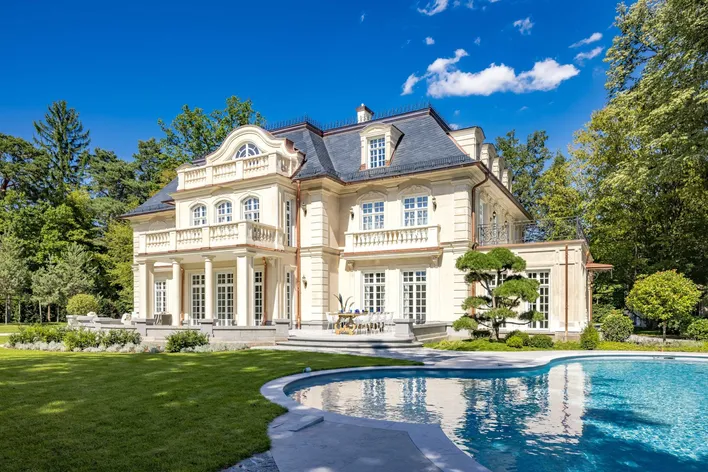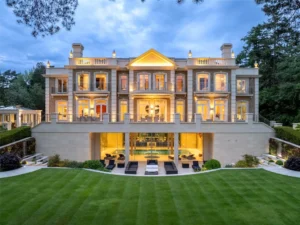Imagine strolling through the vibrant streets of Munich, where history and modernity blend seamlessly. From the bustling Marienplatz to the serene English Garden, every corner of the city tells a story. An elegant townhouse stands among the picturesque buildings, both old and new. For years, the homeowner, Maria Fischer, has enjoyed the charm and comfort of her Munich abode. However, as her family grows, she faces a daunting task: entering Munich’s fiercely competitive real estate market. Maria isn’t alone. Thousands of residents and investors are grappling with the same challenges, wondering if they will ever find their dream home or make the right investment in this dynamic city.
The State of Munich’s Real Estate Market
Munich, the capital of Bavaria, is renowned for its rich cultural heritage, high quality of life, and vibrant real estate market. Owing to its economic stability, strong employment market, and high living standards, Munich consistently ranks as one of the most desirable cities in Germany—and Europe at large. However, this desirability comes at a price, quite literally.
As of 2024, Munich is one of the most expensive cities in Germany for real estate. According to a recent report by Statista, the average price per square meter for residential properties in Munich is approximately €9,500, with prices in prime locations exceeding €15,000 per square meter (Statista, 2023). These figures represent a significant increase over the past decade, highlighting a trend that shows no signs of slowing down.
The Factors Driving High Prices
Several factors contribute to the high real estate prices in Munich:
- Economic Strength: Munich is a powerhouse in terms of economic output. It hosts the headquarters of multinational corporations like BMW, Siemens, and Allianz, which brings a steady influx of professionals to the city. This high demand for housing, especially in desirable neighborhoods, contributes to rising prices.
- Limited Land Availability: The geographic constraints of Munich, nestled between the Alps and various lakes, limit the amount of available land for new construction. Moreover, strict building regulations and a commitment to maintaining the city’s historic architecture further restrict new developments.
- Population Growth: The city’s population has been growing steadily. According to the Bavarian State Office for Statistics, Munich’s population is expected to grow by another 5% by 2030, adding further pressure on an already tight real estate market (Bavarian State Office for Statistics, 2022).
- Quality of Life: Consistently ranking high in global quality-of-life indices, Munich attracts a diverse population, from international students to retirees looking for a peaceful yet cosmopolitan environment. The city’s robust public transportation system, green spaces, cultural events, and safe neighborhoods make it highly desirable.
Current Trends in Munich’s Real Estate Market
Despite its high prices, Munich remains a hotbed for real estate transactions. The current trends in the Munich real estate market include:
- Shift to the Suburbs: Due to soaring prices in central Munich, many buyers and renters are looking towards the suburbs. Areas like Passing, Trudering, and even further afield to cities such as Freising or Dachau have seen increased interest. These areas offer more affordable housing options and still provide reasonable commuting times to the city center.
- Rise in Rental Prices: Not only are property prices high, but Munich also has one of Germany’s most expensive rental markets. According to ImmobilienScout24, the average rent for an apartment in Munich is around €20 per square meter (ImmobilienScout24, 2023). A 70-square-meter apartment equals €1,400 per month, not including utilities. This is significantly higher than the national average, which hovers around €10 per square meter.
- Sustainability and Smart Homes: With a growing emphasis on sustainability, there is an increasing demand for energy-efficient smart homes. New developments are often equipped with solar panels, smart heating systems, and other eco-friendly technologies, appealing to environmentally conscious buyers and renters.
The Challenges for Buyers and Investors
Entering the Munich real estate market poses several challenges, both for potential homeowners like Maria Fischer and for investors:
- High Initial Costs: The high cost per square meter means that even small properties require substantial initial investments. Many potential buyers need to secure significant mortgages, which can be difficult given the stringent lending criteria set by German banks.
- Competitive Bidding Wars: Bidding wars are common due to limited inventory and high demand. Properties in desirable neighborhoods can attract dozens of potential buyers, driving higher prices.
- Regulatory Hurdles: Germany’s property laws are strict concerning tenant rights. Investors looking to purchase rental properties must navigate these regulations carefully, as tenants have strong protections, making evictions and significant rent increases challenging.
Future Outlook
Looking ahead, the Munich real estate market is likely to remain strong but competitive. Some key factors influencing the future include:
- Interest Rate Fluctuations: The European Central Bank’s interest rate policies will be crucial. Higher interest rates could cool the market by making mortgages more expensive and reducing demand.
- New Housing Projects: The city has recognized the need to expand its housing stock and has several projects in the pipeline. For example, the “Bavaria Towers” project and the “Werksviertel” area redevelopment near Ostbahnhof aim to provide more residential units. However, these developments are often high-end, which may not alleviate pressure on the lower and middle segments of the market.
- Urban Development Policies: Munich’s urban development strategy, which includes creating more affordable housing and maintaining green spaces, will be critical in shaping the future market. The city plans to add around 8,500 housing units annually to meet the growing demand, as reported by the Munich Urban Development Office (Munich Urban Development Office, 2023).
Conclusion
Munich’s real estate market remains one of Europe’s most vibrant and competitive markets, driven by economic strength, limited land availability, and high quality of life. For prospective buyers like Maria Fischer, navigating this market requires careful planning, strategic decision-making, and, often, a willingness to compromise on location or property size. For investors, the city offers lucrative opportunities, albeit with significant challenges due to high entry costs and regulatory complexities.
Whether you’re a first-time buyer, a seasoned investor, or someone simply looking to rent, understanding the intricacies of Munich’s real estate market is crucial. As the city grows and evolves, staying informed and adaptable will be key to success in this dynamic market.






